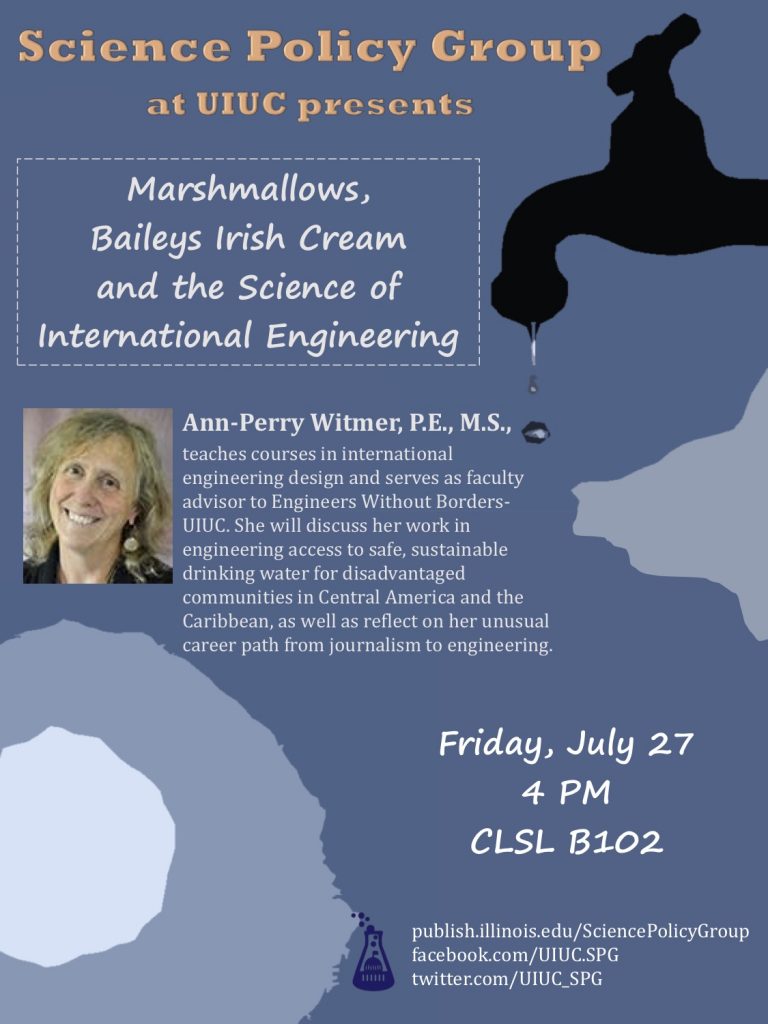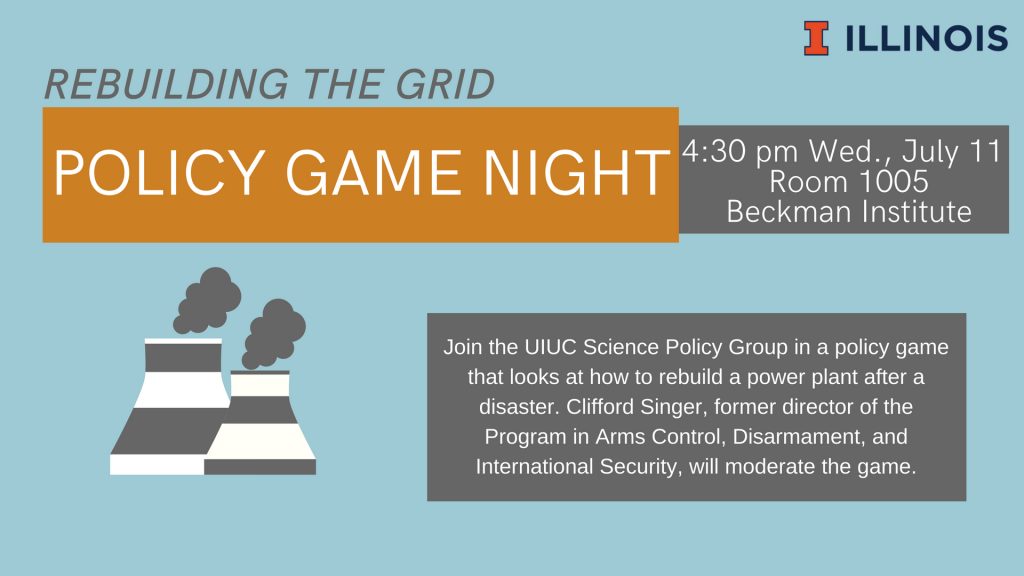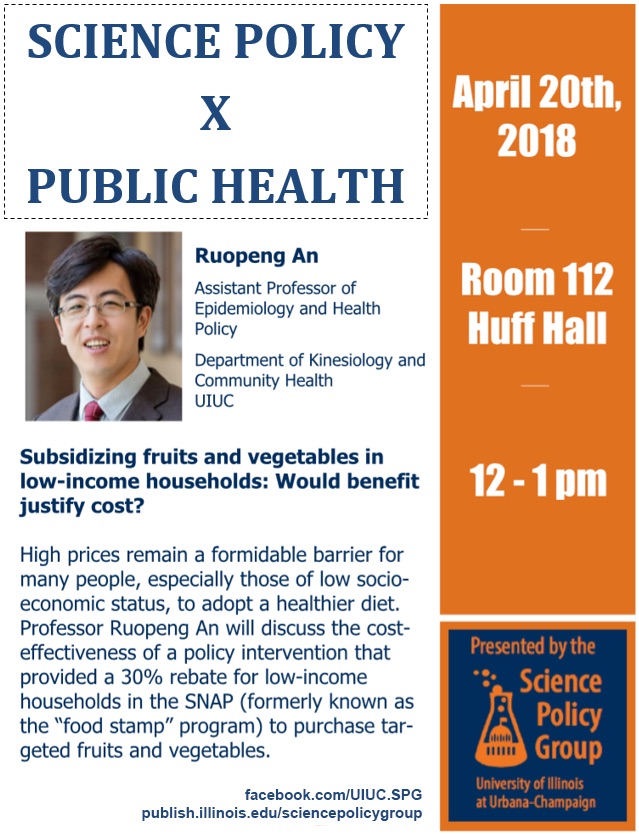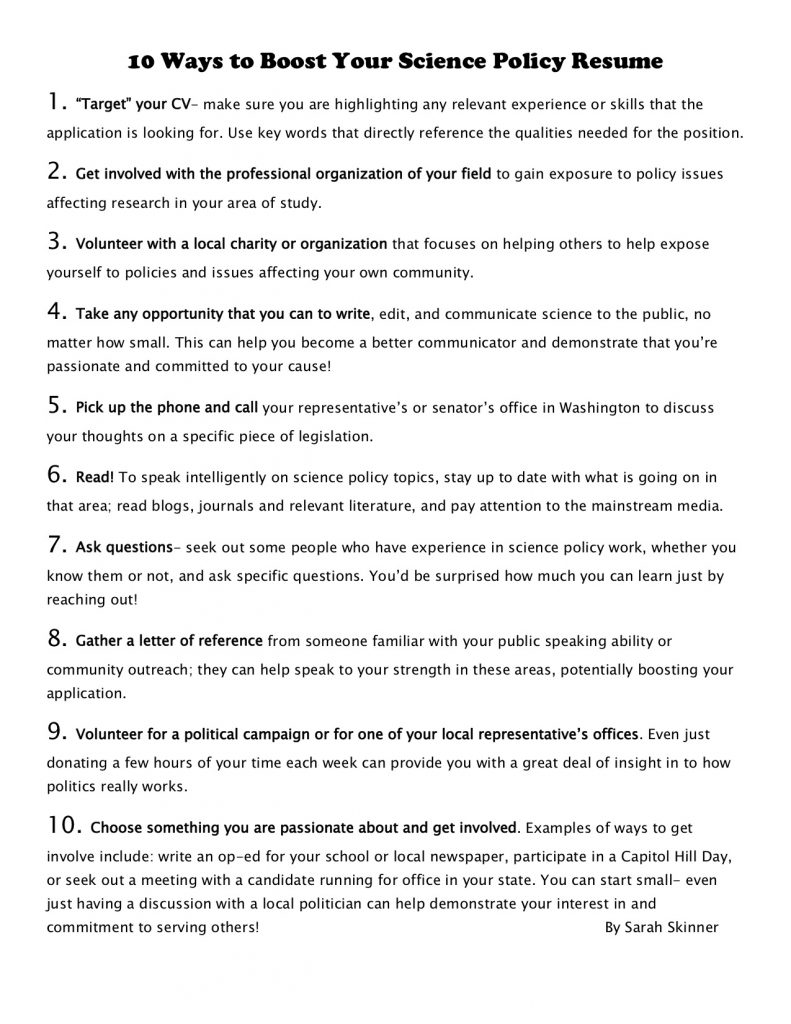(Robby Goldman–Advocacy Committee Chair, Science Policy Group at UIUC)
I visited Washington, D.C. several times in the past few months to meet with the offices of my members of Congress. I first visited in September 2017 as a participant of the American Geosciences Institute’s (AGI) Geoscience Congressional Visits Days (Geo-CVD). I then returned in March for the American Association for the Advancement of Science’s (AAAS) Catalyzing Advocacy in Science and Engineering (CASE) workshop. Finally, I participated in the American Geophysical Union’s (AGU) Voices for Science workshop in April. From these trips, I have gained valuable experience interacting with Congressional staff (as well as my Congressman), and came away with a better understanding of my representatives’ priorities and how certain science-based policies fit within their goals.
The objective of each of my trips was to encourage my Senators and Congressman to support increases in science funding commensurate with inflation. Federal support is necessary for sustaining critical, cutting-edge research projects, which are often multi-year endeavors. My own research team, the Volcano Geophysics Lab at the University of Illinois Urbana-Champaign (UIUC), has been improving methods for predicting when and where volcanic eruptions will occur, a topic of recent national interest thanks to the vigorous eruptive activity of Hawaii’s Kilauea volcano. Our research team’s efforts are guided by years of work conducted by our advisor, Dr. Trish Gregg, and her colleagues, and federal funding is necessary for sustaining many of the scientific discoveries that our team has and will continue to make over the coming years.
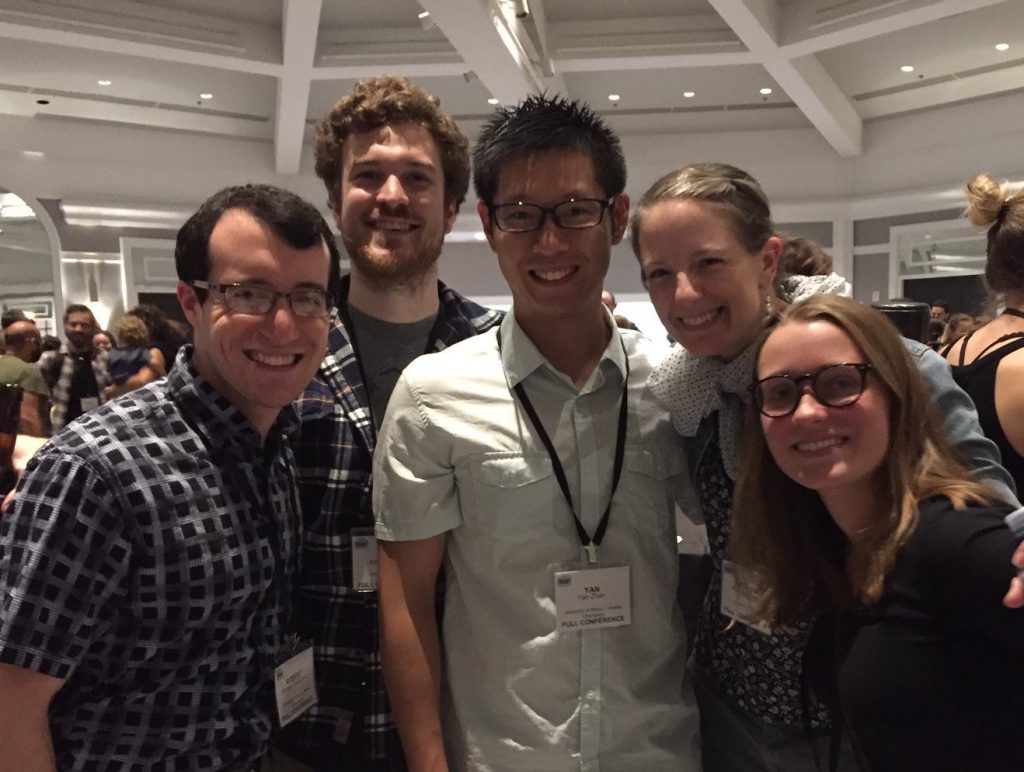
Members of UIUC’s Volcano Geophysics Lab at the 2017 IAVCEI volcanology conference
Strong and consistent federal science funding is also critical for supporting thousands of young scientists, like myself, across the country through research grants and fellowships. My team’s volcanology research, for example, is funded by NASA and the National Science Foundation (NSF). In fact, three years of my graduate study will be supported by an NSF Graduate Research Fellowship. Moreover, as a top (R1) research institution, the University of Illinois has been awarded the most NSF funding of any university for the last six years, which supports thousands of student and faculty scientists.
Given the importance of federal science funding, I was shocked and dismayed in early 2017 when President Trump’s Fiscal Year 2018 budget proposed cuts for numerous science agencies, including NASA (3%) and NSF (11%). Several other Earth science agencies received cuts, including the National Oceanic and Atmospheric Administration (NOAA—16%), the United States Geological Survey (USGS—15%), the Department of Energy (DOE—9%), and the Environmental Protection Agency (EPA—31%). It was these proposed cuts, and my fear that scientific enterprise was no longer a national priority, that motivated me to visit Washington, D.C.—for the first time—and communicate my concerns to my representatives.
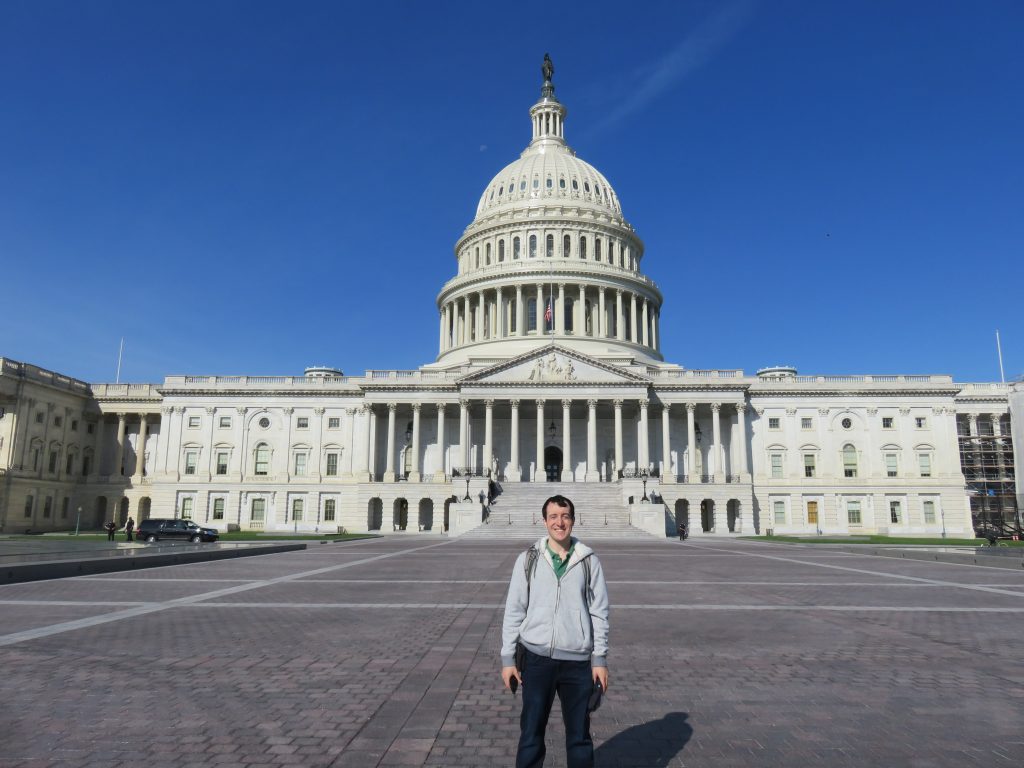
My first visit to the Capitol Building
While in D.C., I learned about the federal budget process, Congressional Committees’ roles in legislating science policies, federal agencies’ roles in enacting those policies, and tips for conducting successful meetings with members of Congress and their staff. I also networked with other politically-engaged scientists and exchanged ideas on promoting science advocacy. Most importantly, I had multiple meetings with the offices of my Illinois representatives: Senator Dick Durbin, Senator Tammy Duckworth, and Representative Rodney Davis (IL 13th District).
The main goal of the meetings was to encourage my members of Congress to support strong and sustained federal science funding, particularly in the geosciences. I conducted these meetings with several other students, usually from the same state or geographic region, and a government-relations liaison. Most meetings were with Congressional staff, who, although less recognized than members of Congress, have a deeper understanding of the very policies that their bosses debate and vote on.
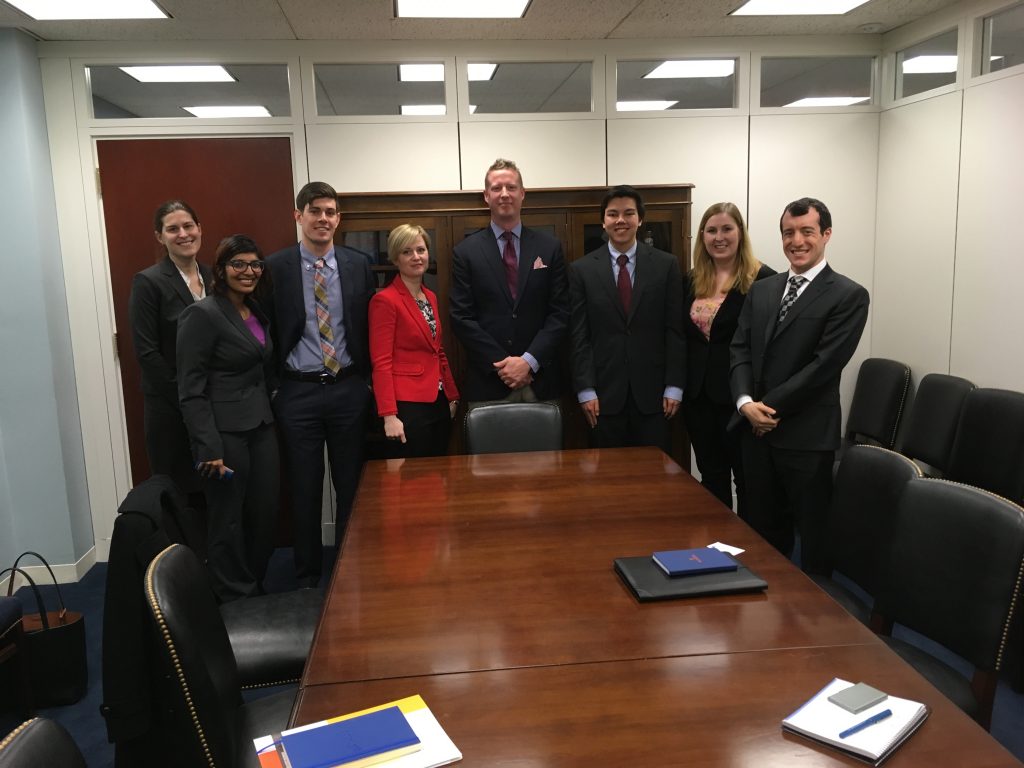
UIUC and Northwestern University students with Mark Copeland (center; Legislative Assistant to Senator Duckworth); 2018 AAAS CASE workshop
Some staffers, like Lauren Aycock, are themselves scientists! I had the pleasure of meeting Lauren—a Congressional Science Fellow for Senator Durbin—twice in D.C. and once at my university campus. We discussed federal science funding, Lauren’s experience as a Congressional Science Fellow, and the importance of sharing stories of our scientific research with both policymakers and the public.
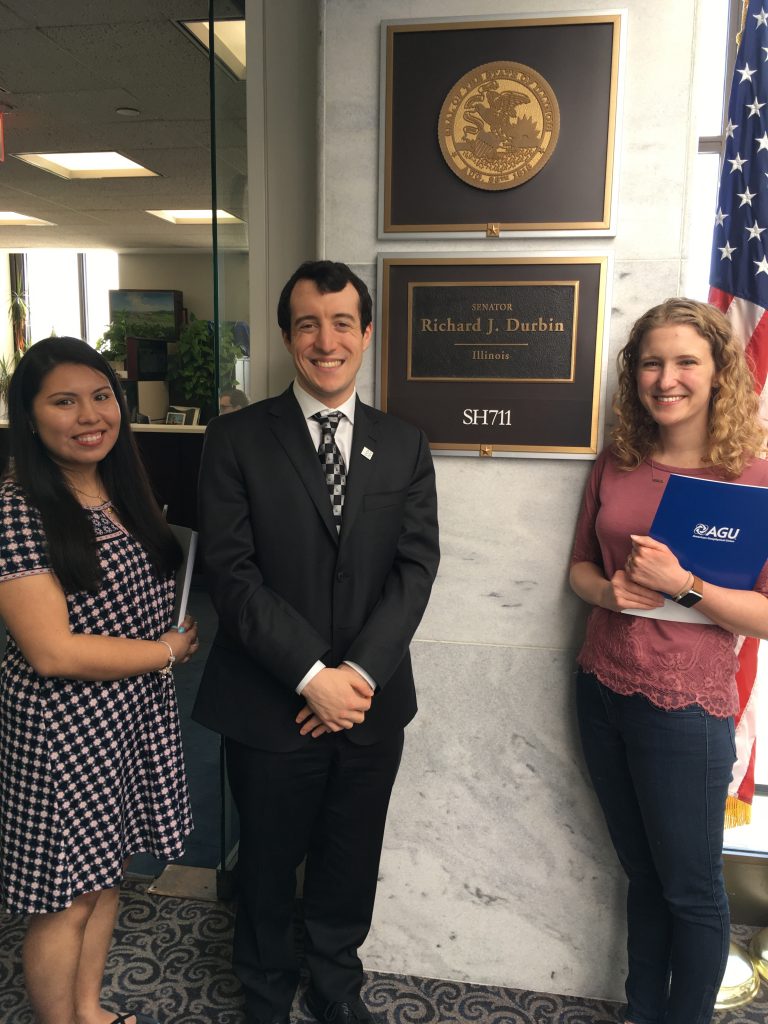
Outside of Senator Durbin’s office after meeting with L.A. Maggie Angel (left) and Congressional Science Fellow Lauren Aycock (right); 2018 AGU Voices for Science workshop
I also had the pleasure of discussing Hawaii’s volcano policy with James Chang, the Science and Technology Legislative Assistant (L.A.) to Senator Brian Schatz. Meeting with James gave me a better appreciation for the role that my research, and that of countless other volcanologists, plays in keeping Hawaii’s residents and tourists safe from volcanic hazards.
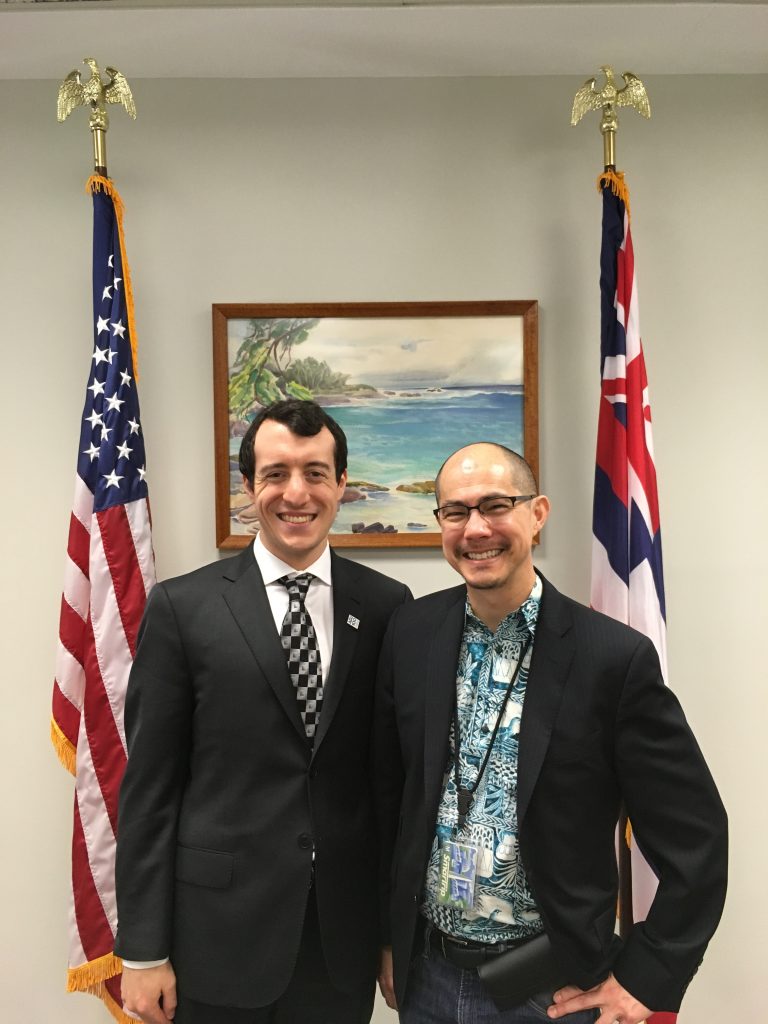
Inside of Senator Schatz’s office after meeting with L.A. James Chang; 2018 AGU Voices for Science workshop
While almost all my Congressional meetings have been with staff, I had the distinct privilege of meeting my Congressman, Representative Rodney Davis (R-IL 13th District), in March. Joined by three other UIUC students, we discussed the importance of increasing research and development funding for driving innovation in both our country and Congressional district.
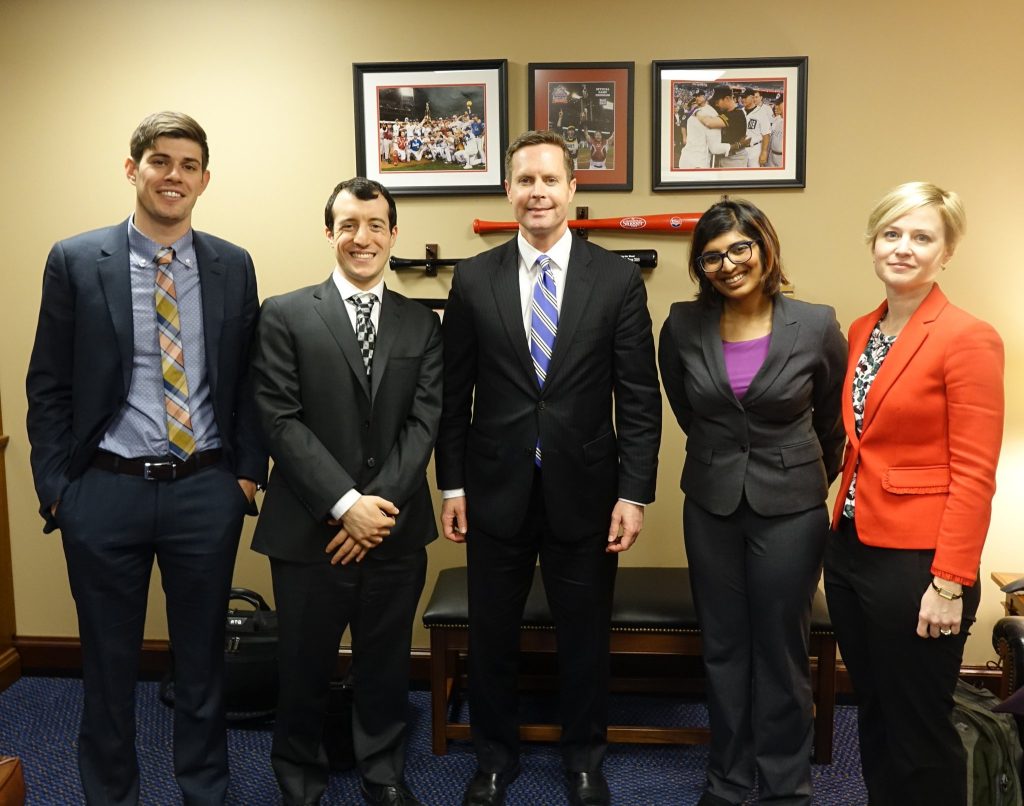
UIUC students with Representative Rodney Davis (R-IL 13th District); 2018 AAAS CASE workshop
From my meetings, I was heartened to learn that science funding is a bipartisan priority. In fact, just two days after my March visit, all my members of Congress passed a spending bill that increased funding for most science agencies for Fiscal Year 2018! Of the six I listed previously—NASA, NSF, NOAA, USGS, DOE, and EPA—none received cuts to their total budgets, and all but the EPA received increases. I feel proud to have played a small, yet valuable, part in defending federal science funding for this calendar year, especially considering that my Illinois colleagues and I had to brave a snowstorm—on the first day of spring—to make some of those meetings possible!
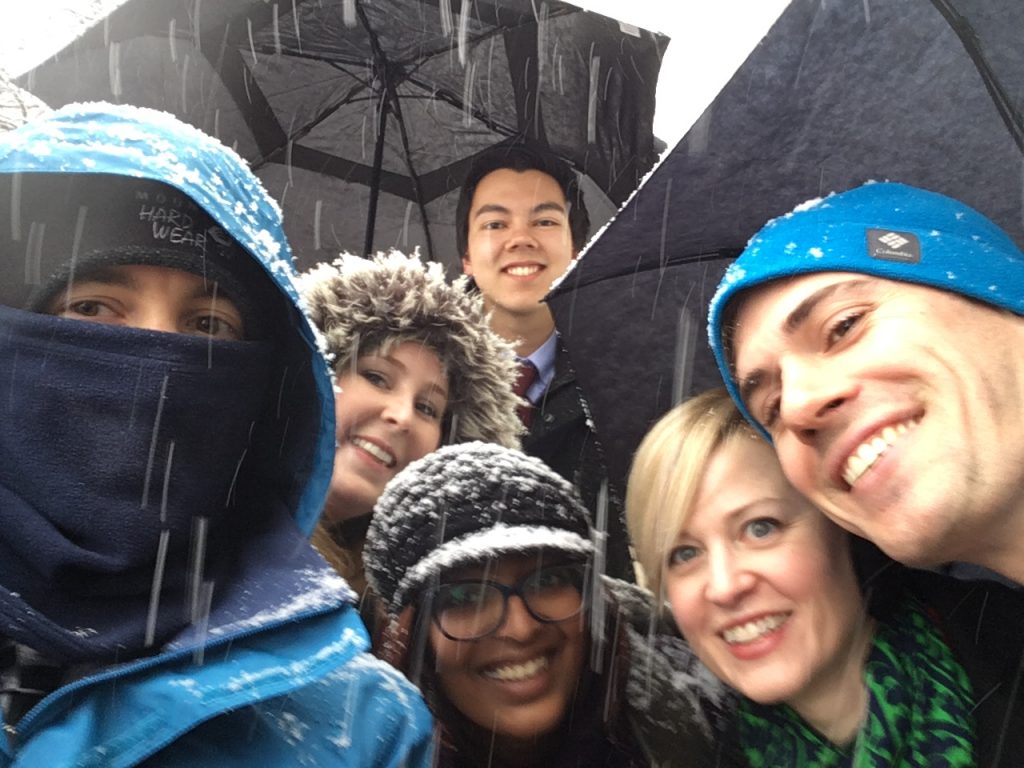
Illinois cohort braving the snow outside the Hart Senate Office Building; 2018 AAAS CASE workshop
We are part of an ever-growing community of scientists who are vocally expressing their support for pro-science policies. Regardless of your familiarity with science advocacy, you too can make an impact! AGU’s science policy website is a great resource (https://sciencepolicy.agu.org/), and I strongly encourage attendees of AGU’s Fall Meeting to schedule meetings with their members of Congress! Together, we can use our voices and expertise to benefit science, scientists and the public here in the United States of America.
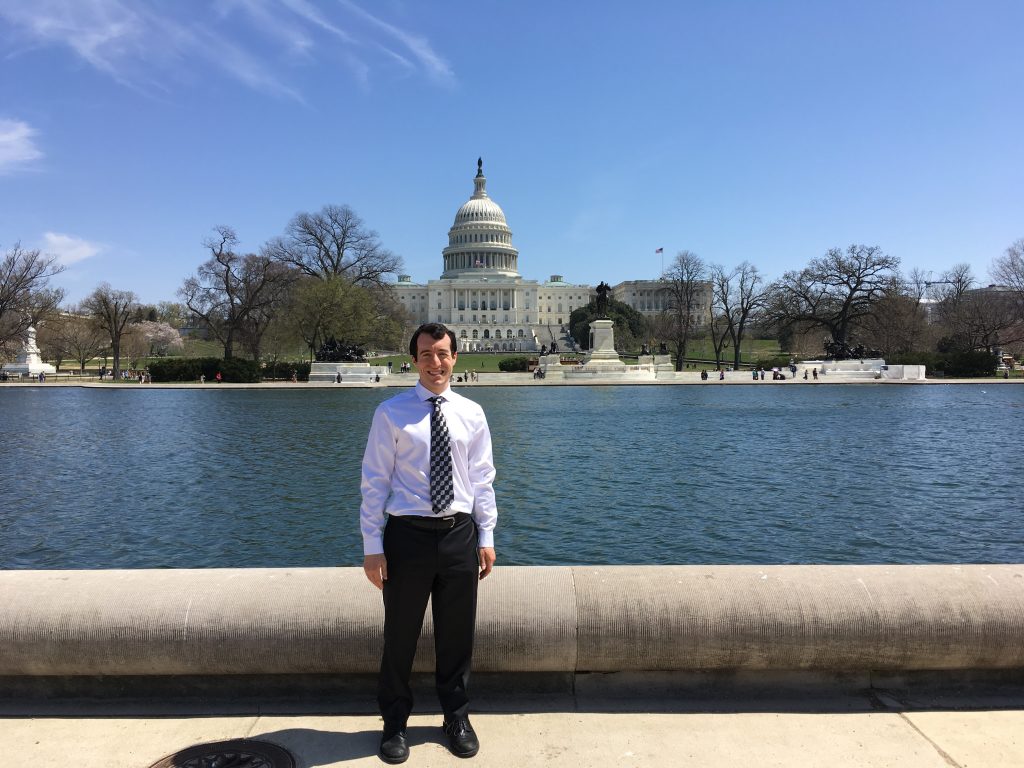
Enjoying a view of the Capitol, and the long-awaited arrival of spring, in between meetings; 2018 AGU Voices for Science workshop
